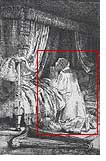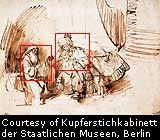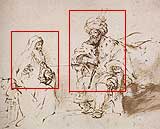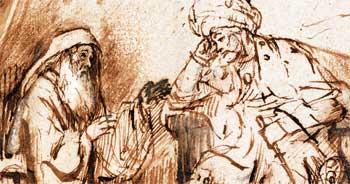I Have Sinned Before God
In response David immediately confesses: 'I have sinned before God'. This comes from the depths of his soul. He does not grovel, as did his predecessor Saul. He accepts responsibility, cognizant of his deplorable transgressions. It is notable that David fully acknowledges that he has sinned 'before God' – not just against the innocents whose lives he has destroyed, but against God who raised him up from behind the flock to make him king.

David's contrition is movingly felt in Rembrandt's etching, David at Prayer. David is not depicted as king, but rather a humble servant penitently beseeching God to save Bathsheba's newborn baby. He will not be able to ward off punishment at this juncture, but, as the Rabbis pointed out, the experience will transform him into the master of repentance. The Book of Psalms attributed to David is the literary monument to this spiritual quest, this unrelenting attempt to restore his cherished relationship with God:
Wash me thoroughly of my iniquity, and purify me of my sin; for I recognize my transgressions, and am ever conscious of my sin. Against You alone have I sinned, and done what is evil in Your sight; so You are just in Your sentence, and right in Your judgment...Fashion a pure heart for me, O God; create in me a steadfast spirit. Do not cast me out of Your presence, or take Your holy spirit away from me. (Psalms 51:4-13)
That which David learned from his transgressions, and taught to all future generations was that man can restore the bond which he has severed, for 'God will not despise a contrite and crushed heart' (Psalms 51:19).


